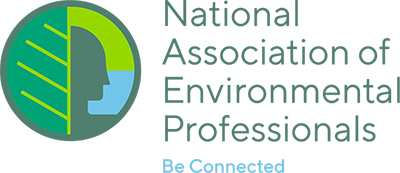Leadership Blog Part 5: Notes from NAEP President, Betty Dehoney
I do not know about many of you, but my academic training was as a biologist and the course work needed for my degree did not include leadership. My experience has been gained more associated with boots on the ground vs academic training. Being an analytical individual, I tried to see what worked and what did not work. There were a lot of leadership books out there that I read (some good and some not so good) and tested some of the concepts. Some concepts worked and some did not. Some of the things that I have tested and seem to be beneficial are as follows:
- Do what you say you are going to do – If you are going to be late, do not wait until the day that the report is due and tell them you are going to be late. Surprises are great for birthdays, but not in business. Seems like a simple concept, but sometimes informing people of things they do not want to hear early (schedule delay, cost increase, significant impact, etc.) so they have time to manage the issue is better received than waiting – it builds trust. This concept was given to me by my grandmother when I was little when I told her I was going to do a chore and did not, and she looked at me and said very clearly you are only as good as your word and you have to do what you say you are going to do.
- Eat the Frog Early – no this is not a problem with auto-correct. I will summarize a conversation with one of my team members. “X” walked into my office one morning at 7:30AM. This is “my” time to get organized, review reports while no one is calling/emailing and get the caffeine flow started. This is what I call my pre-verbal stage where I really have trouble talking, so I try to get to work earlier than my team. The gist of the conversation was that “X” was having a challenge with a team member not delivering and it had been going on for some time- my question was have you talked to the team member- the answer was no. My response was “Eat the Frog”- yes, that was my response. As noted above, I am a biologist by training and when “X”’s response was this blank stare, my added response was would you rather eat a tadpole or a full-grown bull frog. You need to talk to the staffer and indicate what are the deficiencies and what do they need to do to do the job per expectations. Since there has not been a conversation before, the staff person is going to be dismayed as to why they had not been informed. What we have is that since you had not had the difficult conversation early (when the problem was a tadpole) you are now faced with a growing frog. Speed forward about three hours, “X” came back into my office and said that the frog had been eaten and that the procrastination was worse than the discussion. The moral of the story is if there is a problem, fix it early (but telling someone to Eat a Frog” does get their attention much more effectively). This is a concept based upon a Mark Twain story that everyone should “eat a frog” the first part of the day and, therefore, the rest of the day will get better; and also based upon the book entitled Eat a Frog by Brian Tracy.
- Do not expect perfection – mistakes happen. Develop a culture where your team members are willing to experiment and take risks. Doing things the same as we have always done is not the correct answer every time, and if something can be done better or more efficiently, we need to change. But there is a risk, sometimes we do things in a certain way because it does work. Let your team take “managed” risk. The big question is what is a “managed” risk? My answer is – take a risk that does not sink the boat. The important part is a leader keeps an open dialogue for team members to come and talk to you when something did not go right. That way corrective action can take place quickly before the problem gets worse (reference that frog).
Betty Dahoney, NAEP President

